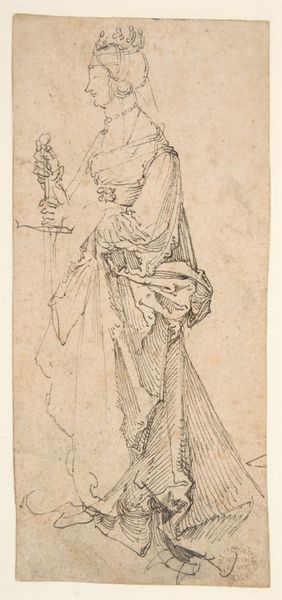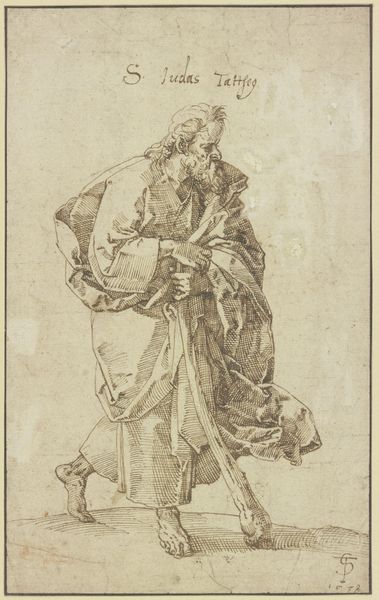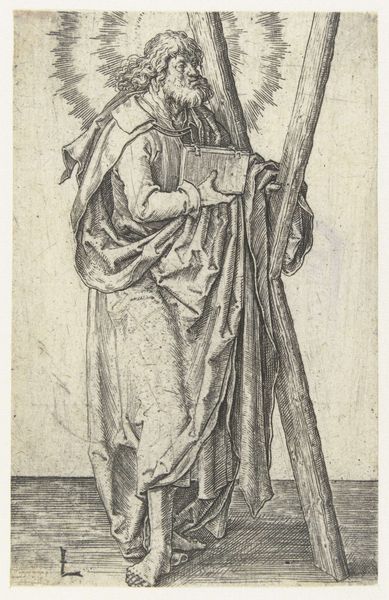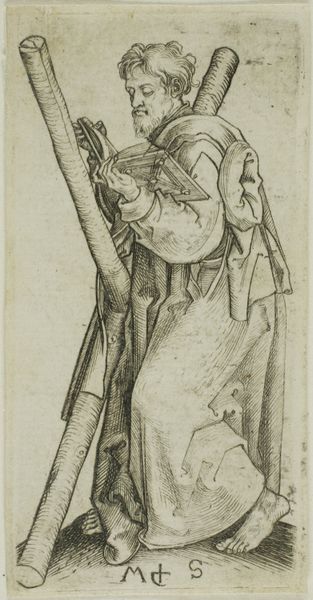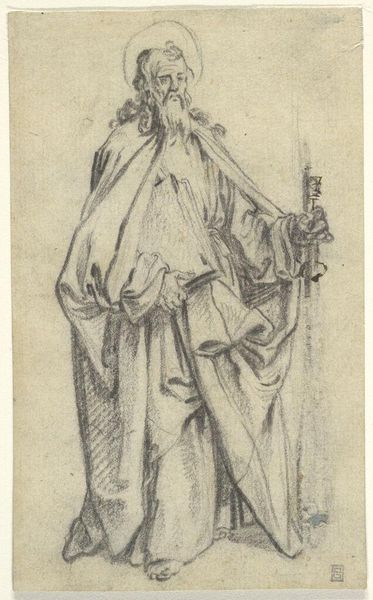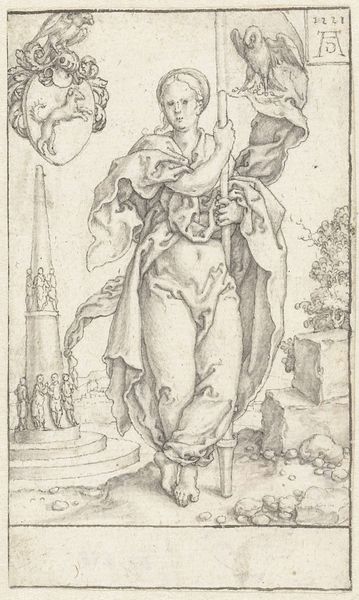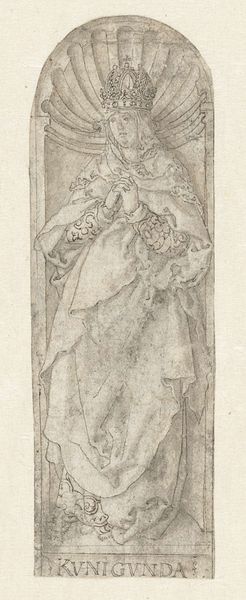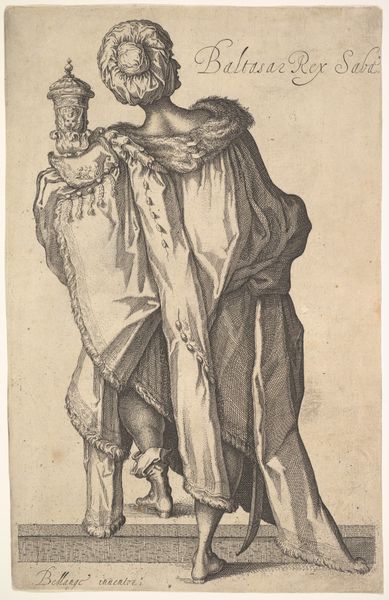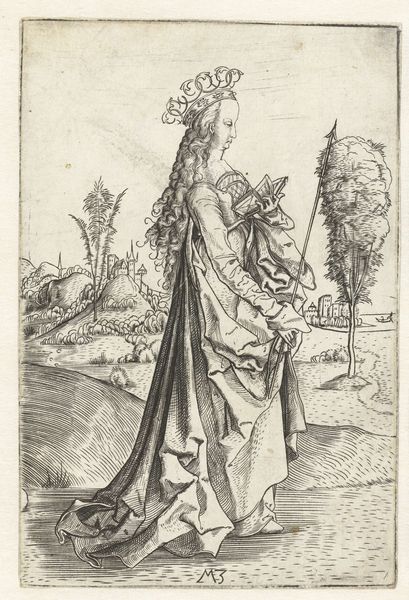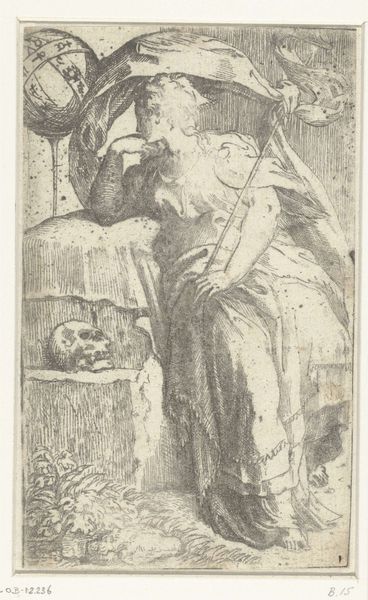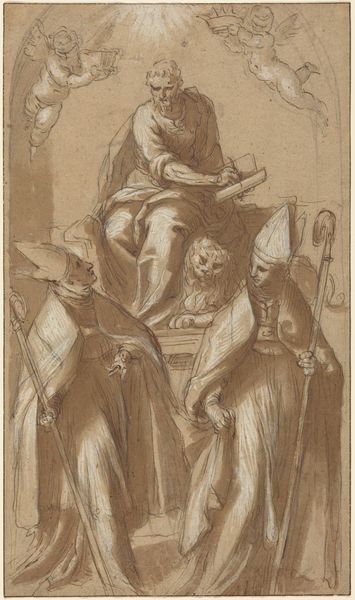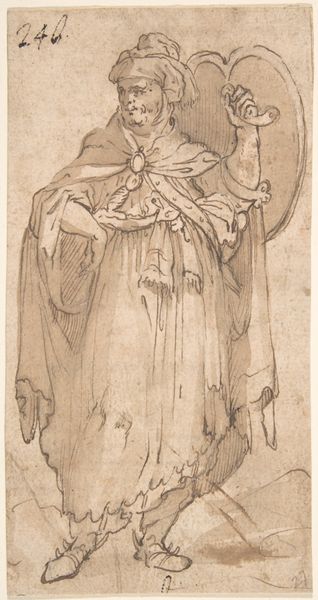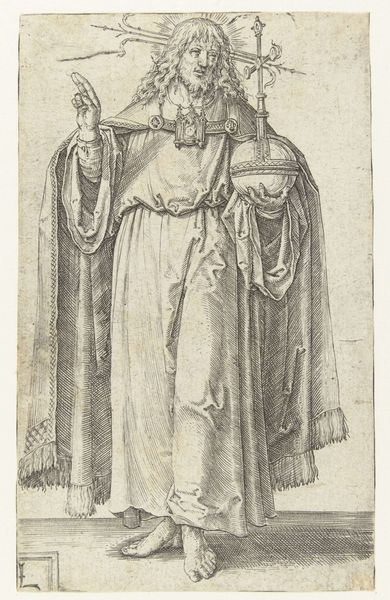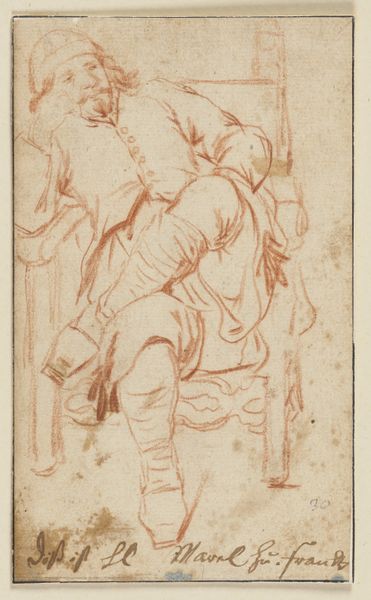
drawing, ink, pen
#
drawing
#
toned paper
#
light pencil work
#
quirky sketch
#
allegory
#
pen sketch
#
pencil sketch
#
figuration
#
11_renaissance
#
personal sketchbook
#
ink
#
sketchwork
#
pen-ink sketch
#
sketchbook drawing
#
pen
#
academic-art
#
sketchbook art
Dimensions: height 258 mm, width 168 mm
Copyright: Rijks Museum: Open Domain
Editor: Here we have "Ontwerp voor een titelblad met putti en een doek voor een raam", or "Design for a Title Page with Putti and a Cloth for a Window," made with pen, ink and pencil on toned paper between 1760 and 1819, by Pierre-Adrien Paris. It has a quirky, almost ethereal feel. What catches your eye in terms of its composition? Curator: The sketch’s strength lies in its masterful control of line and tonal values. Observe how Paris uses delicate pencil work to create subtle gradations in the draped cloth, contrasting with the bolder, more defined pen strokes that delineate the architectural frame and the playful putti. What semiotic reading might be gleaned? Editor: The contrast creates a sense of depth. The putti and architectural frame, being darker, seem to ground the image while the light fabric seems to recede, which is rather striking. I do see symbolic associations, the putti evoke ideas of innocence, the fabric implies a division of public versus private, but where should we begin in decoding the overall intent? Curator: Let us first focus on the formal structure. Consider how the artist balances the composition using asymmetrical elements. The cluster of putti at the bottom left is visually offset by the single cherubic figure clinging to the upper right corner. What affect is established through asymmetry versus perfect symmetry? Editor: The asymmetry brings life, as though it is alive and captured at any moment. Perhaps it mirrors the spontaneity of a sketch or thought coming into being. This design, if used for a title page, would be full of movement. Curator: Indeed. It is an energizing element in the artwork, drawing our eyes to follow a dynamic visual path throughout the composition. The materiality, in its combination of media, allows Paris to explore the qualities of depth that creates dynamism. What are your conclusions? Editor: This interplay encourages multiple readings. The artist combines precise design with playful, figural, asymmetry. I didn’t anticipate how a simple tonal choice could so drastically change the perception of depth, especially through the semiotic associations. Curator: I agree.
Comments
No comments
Be the first to comment and join the conversation on the ultimate creative platform.
